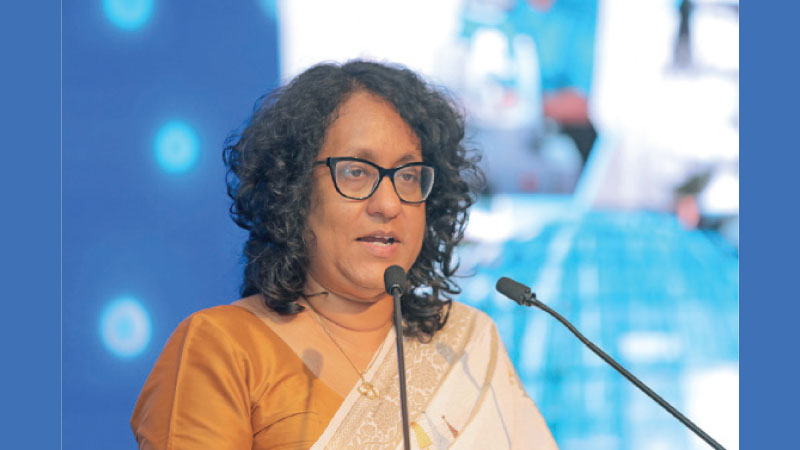Prime Minister Dr. Harini Amarasuriya said that innovation is not a luxury but “the catalyst for meaningful transformation in Sri Lanka” and essential for the country’s survival in a rapidly evolving global landscape.
The Prime Minister told the ‘Innovation for Economic Transformation’ event under the ADB’s Serendipity Knowledge Program (SKOP) in Colombo on Thursday that the timely discussion on innovation “resonates strongly with the Government’s vision to take Sri Lanka on a new economic trajectory towards inclusion, resilience, and sustainability.”
Dr. Amarasuriya said that universities must be at the heart of the country’s innovation ecosystem. “They must serve as hubs of creativity, collaboration, and entrepreneurship, driving forward the ideas and solutions that will shape our future. This requires a long-term mission, long-term investment in our universities, in our higher education institutions, and understanding what it takes to actually produce knowledge that is useful and not merely for our promotional purposes,” she said.
Dr. Amaarsuriya outlined three key strategies to promote innovation: fostering multidisciplinary collaboration at the university level, engaging with industries and communities nationally, and accelerating technology adoption through global partnerships internationally.
The Prime Minister noted how Sri Lanka once stood as a beacon in the region, with even Singapore’s Lee Kuan Yew expressing hopes that his country might emulate Sri Lanka in the 1960s.
“Our economy was ahead of South Korea’s and Singapore’s, yet today the tables have turned,” she said, pointing to Singapore and Korea’s developed country status while Sri Lanka briefly reached upper middle-income status in 2019, only to fall back in 2020 amid an unprecedented economic crisis exacerbated by the Covid-19 pandemic.
“Though there are other factors, one factor stands out clearly in this reversal – our society has not prioritised innovation,” she said adding, “Our gross expenditure on research and development is only 0.5 percent of GDP.”
She challenged the artificial divide between STEM and arts subjects. Dr. Amarasuriya also questioned the approach of “dumbing down university programs” by simply adding soft skills and IT components, instead calling for holistic, integrated education focused on critical thinking, innovation and inquiry.
“We are creating this inequality in the school system itself,” she said. She added how limited science and mathematics offerings at the Advanced Level (A/L) examination create an unequal educational landscape due to teacher shortages in those subjects.
Dr. Amarasuriya directly confronted what she termed “unexamined assumptions” that have shaped education policy for decades. The key such assumptions are “We produce too many arts and humanities graduates.” “Our graduates are unemployable”. “And why are they unemployable? Because they lack soft skills in English,”
She said that these beliefs have become entrenched without proper scrutiny, leading to misguided policy responses that fail to address root causes.
ADB’ Country Director, Sri Lanka, Takafumi Kadono, Secretary, Ministry of Education, Higher Education and Vocational Education Nalaka Kaluwewa, Senior Advisor to the President of Sri Lanka on Science and Technology Gomika Udugamasooriya and many other academics and Government officials attended the event.






